On the afternoon of July 11th, the closing ceremony for the 2025 Summer Internship Program for Hong Kong and Macao Law Students in Mainland Courts was held at the Shanghai High People's Court. Senior officials from relevant central authorities attended the ceremony, including the Hong Kong and Macao Work Office of the Central Committee of the Communist Party of China (CPC), the Hong Kong and Macao Basic Law Committee of the Standing Committee of the National People's Congress (NPC), the Supreme People's Court of the People's Republic of China, the Ministry of Education of the People's Republic of China, the Liaison Office of the Central People's Government in the Hong Kong Special Administrative Region (HKSAR), and the Liaison Office of the Central People's Government in the Macao Special Administrative Region. Fifty-eight law students from five universities in Hong Kong and Macao participated in the program.
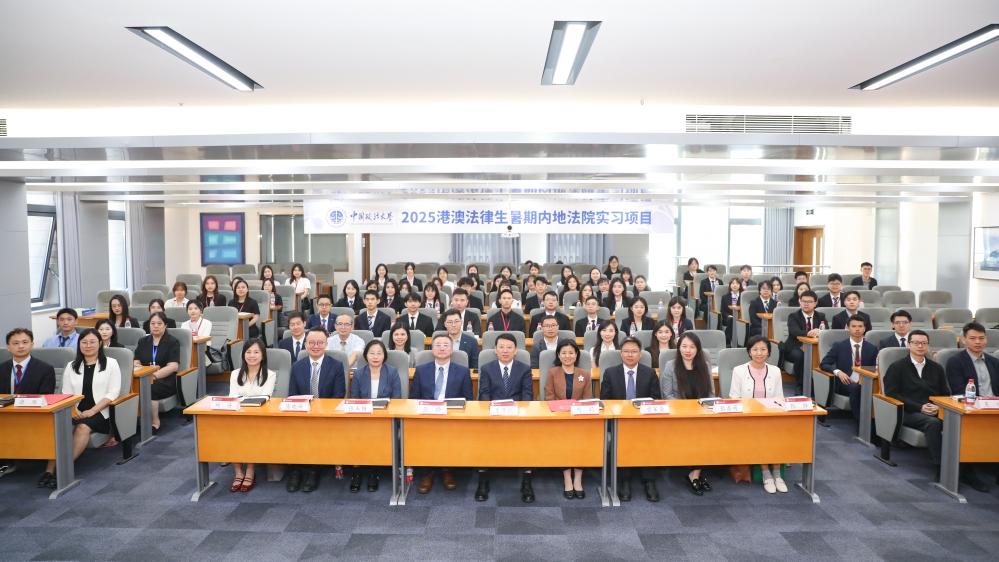
Group photo of all students participating in the 2025 Summer Internship Program for Hong Kong and Macao Law Students in Mainland Courts
Dr. Mou Xiaobo, Programme Director of the Faculty of Law at the Macau University of Science and Technology (MUST), represented the university at the closing ceremony. He witnessed four MUST law students – Hong Chunfeng, Liang Xihua, Sun Chongwu, and Ye Jiaxi – successfully complete the program and receive their certificates.
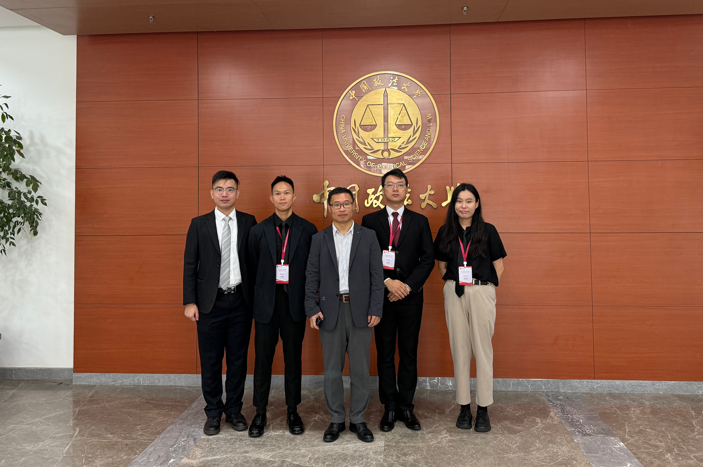
Dr. Mou Xiaobo (Programme Director, MUST Faculty of Law) with MUST law students
Approved by the Hong Kong and Macao Work Office of the CPC Central Committee and organized by the Supreme People's Court and the Ministry of Education, the 2025 Summer Internship marks the seventeenth time Hong Kong and Macao law students have interned in mainland courts. The program ran from June 17th to July 19th. Participants began with a week of intensive training at the China University of Political Science and Law (CUPL) in Beijing, followed by practical internships in courts across Shanghai, Guangzhou, Nanjing, Hangzhou, and Shenzhen. The organizers aim to help Hong Kong and Macao students gain a deeper understanding of mainland China's socio-economic development, appreciate its historical and cultural heritage, enhance their comprehension of the mainland legal system, acquire practical legal work experience, and prepare them for future careers in the legal sector of the Guangdong-Hong Kong-Macao Greater Bay Area.
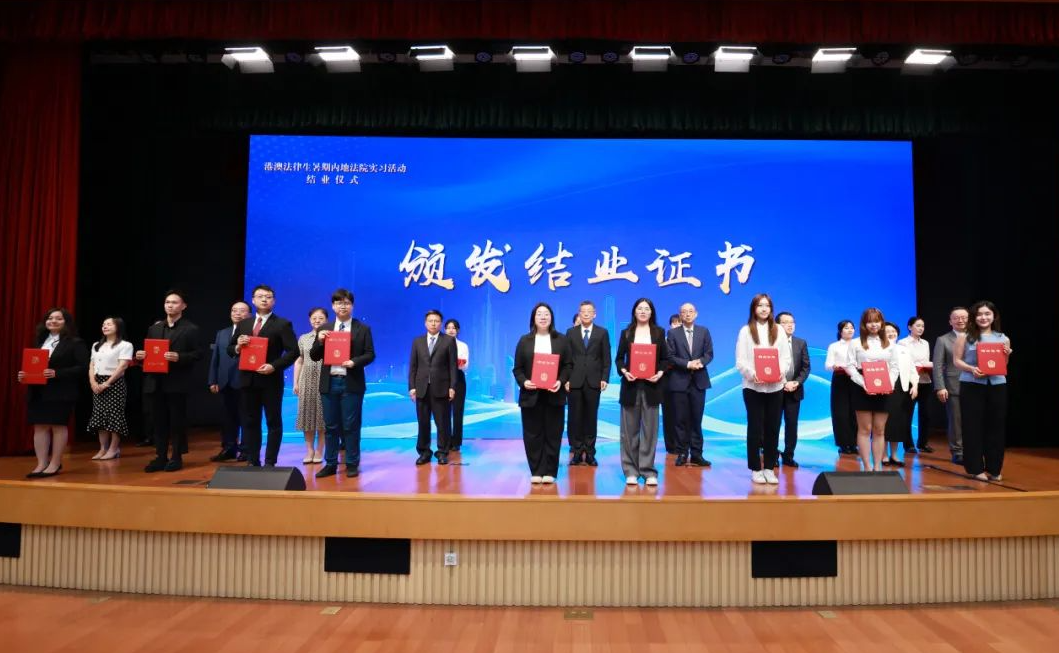
Closing Ceremony of the 2025 Summer Internship Program for Hong Kong and Macao Law Students in Mainland Courts
Student Reflections:
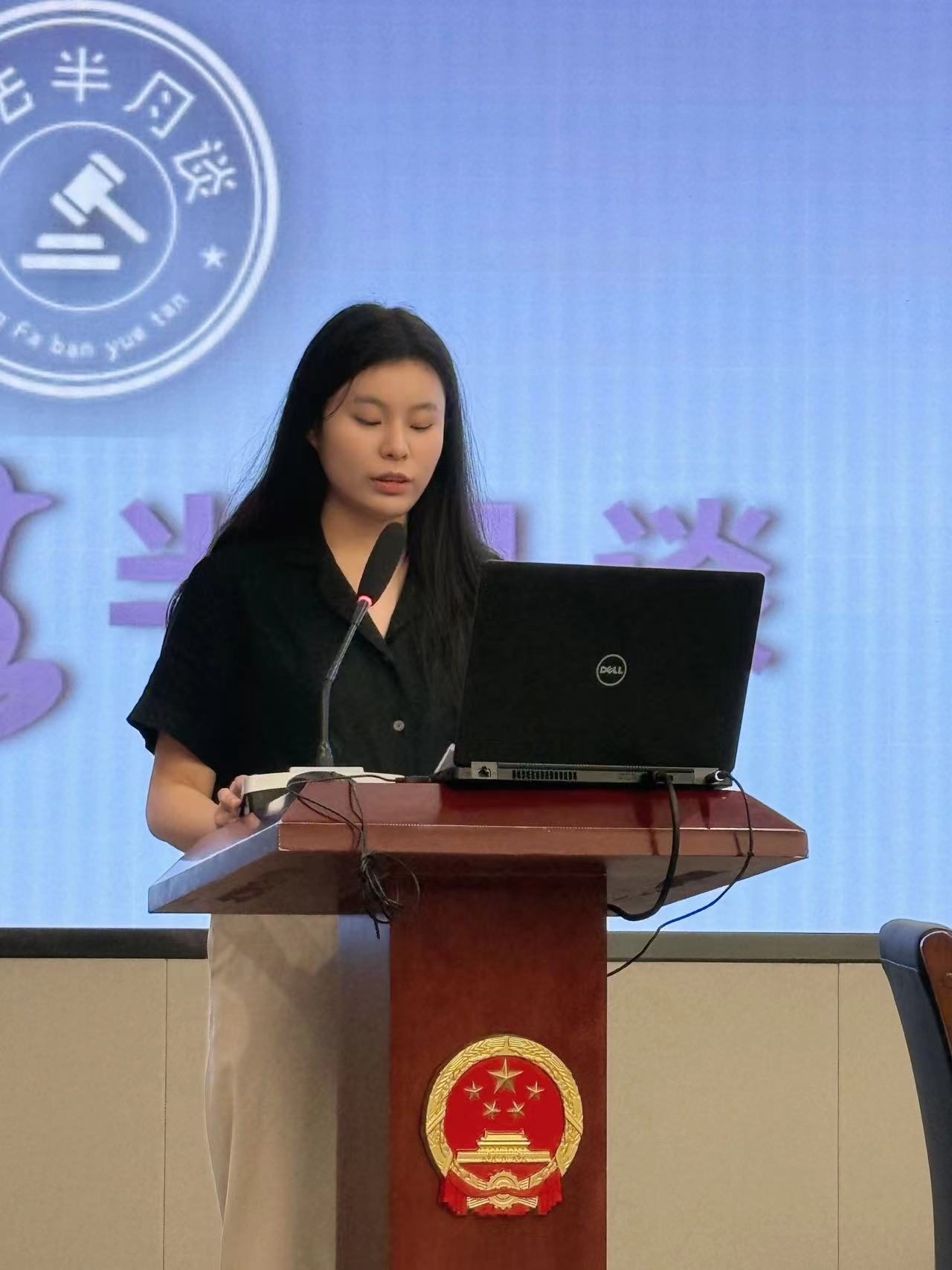
LEONG, HEI WA:
"This summer, I participated in the internship program and was assigned to the Qinhuai District People's Court in Nanjing. Working within the Civil Division II (handling commercial cases), I gained exposure to disputes involving corporate contracts, shareholder rights, capital contribution obligations, and enforcement objections. This significantly broadened my understanding of commercial adjudication.
During the internship, I also had the privilege of participating in the Ningfa 'Banyuetan' (Half-Month Talk) event, a law salon where we shared and exchanged insights on traditional Chinese legal culture. It was a fascinating experience of intellectual exchange between students from Hong Kong, Macao, and the mainland, highlighting different perspectives shaped by our distinct legal education backgrounds."
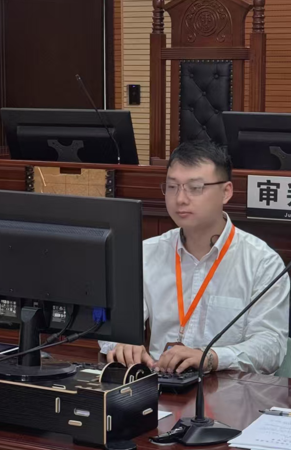
SUN, SONG MOU:
"During this internship at the Tianhe District People's Court in Guangzhou, I served as a court clerk and a judge's assistant in the Small Claims and Civil-Commercial Division. The experience was profoundly insightful. As a clerk, responsible for courtroom records and document management, I learned the critical importance of speed and precision, witnessing firsthand the immense caseload at the grassroots level and the paramount importance of judicial efficiency. As a judge's assistant, participating in dispute mediation and evidence review, I observed the humanistic application of the law in practice. This underscored how the rule of law manifests in the resolution of everyday disputes, deepening my understanding of 'impartial justice' and prompting reflection on my own professional development.
I was particularly struck by observing judges patiently guiding citizens through their disputes. This demonstrated that the rule of law is not merely a theoretical framework but a vital pillar safeguarding people's livelihoods.
I extend my sincere gratitude to the organizing authorities for their meticulous planning and support. This was an invaluable opportunity, allowing us Macao students to witness the core of the nation's judicial system firsthand. We gained a deeper understanding of the essence of the socialist rule of law system with Chinese characteristics and reinforced our sense of responsibility to 'love the country and love Macao.' Looking ahead, I am committed to applying what I have learned to contribute to Macao's legal development. This enriching experience will stay with me forever."
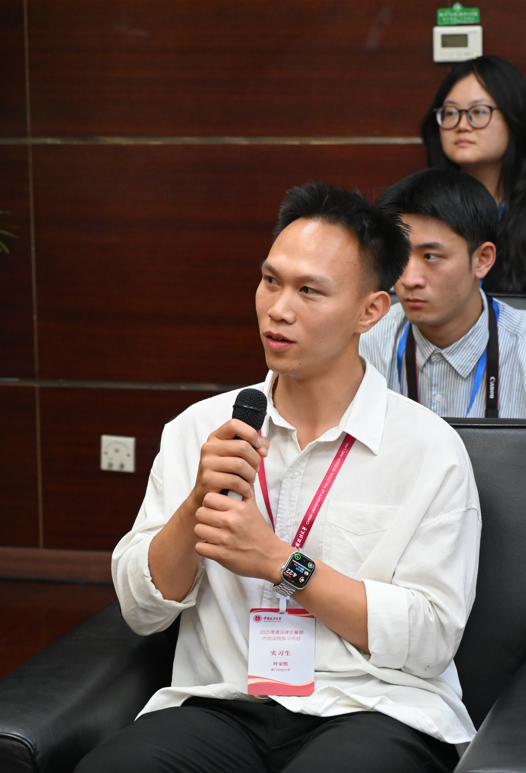
IP, KA HEI:
"Studying at the China University of Political Science and Law in Beijing felt like navigating a dense forest of jurisprudence. The subsequent internship at the Tianhe District People's Court in Guangzhou, however, plunged me directly into the real-world currents of legal practice. The daily rhythm of the court was far removed from the purity of the classroom. While organizing case files, I saw that behind each docket number lay fractured families and broken contracts. Observing trials was an immediate jolt: the plaintiff's anxiety clashed with the defendant's arguments, sharp words and surging emotions threatening to breach the formal order, revealing the turbulent human undercurrents beneath the structured legal process.
One incident during my internship left a deep impression: mediating a divorce dispute. The couple exchanged bitter accusations before the judge. Watching the judge patiently explain the law and reason with them, I saw the legal machinery operate methodically, yet I also sensed the unspoken emotional wounds of the parties involved. The legal provisions seemed capable of dividing property but powerless to bridge the chasms in their hearts. This awakened me to a crucial truth: the law provides a rational framework, but it often confronts individuals awash with emotion. Effective justice in the real world demands profound empathy and human warmth.
The theoretical light of Beijing illuminated my vision of fairness and justice; the practical experience in Guangzhou's Tianhe allowed me to touch the law's grounding in the messy realities of human life and its necessary warmth. The tree of legal knowledge must root itself deeply in the soil of society, its branches reaching towards the needs of the human heart. Only by combining rational thought with humanistic care can we find the illuminating path through the vast galaxy of law. To conclude with the words of the People's Courts: 'To ensure the people feel fairness and justice in every judicial case' – this is the pursuit of every law student!"




